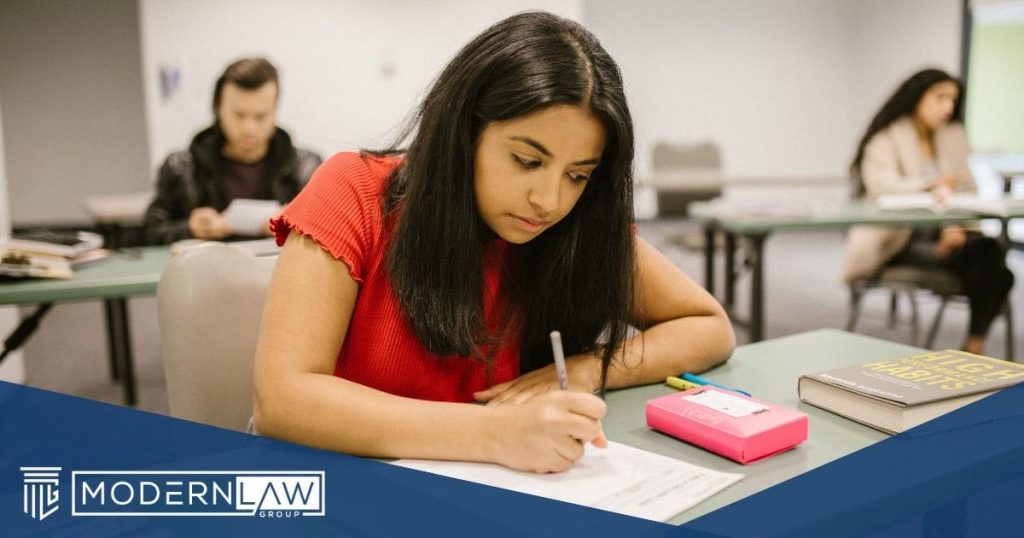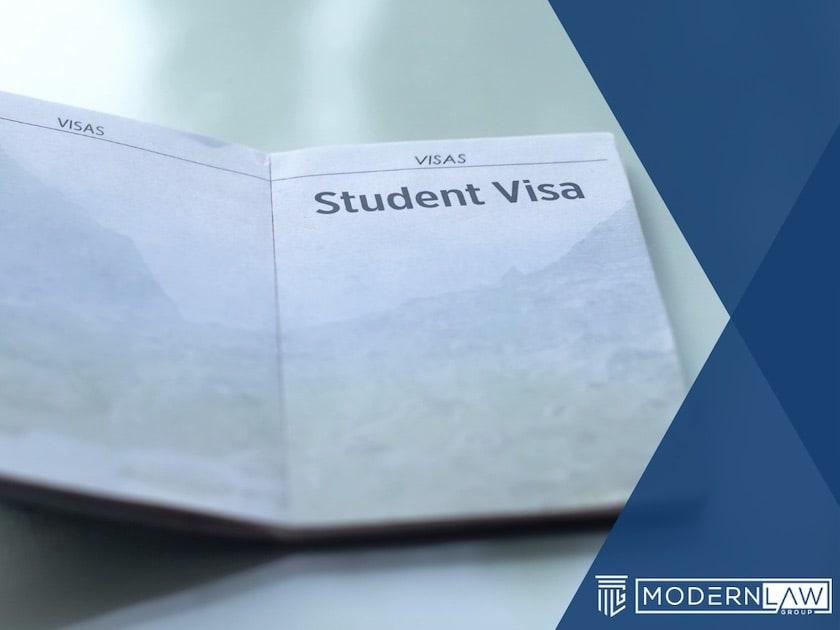Student Visas

There are a few different types of student visas available to those looking to study in the United States. The type of student visa you will need depends on the level of study you are undertaking and your country of origin. This guide explains.
Your Guide to Student Visas in the United States
If you are coming to the United States to pursue a higher education, such as a bachelor’s degree or higher, you will need what is known as an F-1 student visa. If you are coming to the United States to attend a secondary school, such as a high school, you will need an M-1 student visa.
In order to obtain either of these visas, you will need to be accepted into a SEVP-certified school. You can find a list of SEVP-certified schools on the U.S. Department of Homeland Security’s website.
Once you have been accepted into a SEVP-certified school, you will need to fill out an application for a student visa. This application, known as the I-20 form, will need to be signed by a school official and submitted to the U.S. Embassy or Consulate in your home country.
You will then need to attend an interview at the U.S. Embassy or Consulate, during which you will need to present your I-20 form, proof of financial support, and evidence that you intend to return to your home country upon completion of your studies.
What Are the Types of Student Visas Available?
There are two types of student visas available for those looking to study in the United States: the F-1 student visa and the M-1 student visa.
F-1 Student Visas in the United States
The F-1 student visa is for students who are coming to the United States to pursue a higher education, such as a bachelor’s degree or higher.
How to Get an F-1 Student Visa
Once you have been accepted into a SEVP-certified school, you will need to fill out an application for a student visa. This application, known as the I-20 form, will need to be signed by a school official and submitted to the U.S. Embassy or Consulate in your home country.
You will then need to attend an interview at the U.S. Embassy or Consulate, during which you will need to present your I-20 form, proof of financial support, and evidence that you intend to return to your home country upon completion of your studies.
M-1 Student Visas in the United States
The M-1 student visa is for students who are coming to the United States to attend a secondary school, such as a high school.
How to Get an M-1 Student Visa
The process for getting an M-1 student visa is similar to the process for getting an F-1 student visa. Once you have been accepted into a SEVP-certified school, you will need to fill out an application for a student visa. This application, known as the I-20 form, will need to be signed by a school official and submitted to the U.S. Embassy or Consulate in your home country.
You will then need to attend an interview at the U.S. Embassy or Consulate, during which you will need to present your I-20 form, proof of financial support, and evidence that you intend to return to your home country upon completion of your studies.
Common Questions About Student Visas in the U.S.

Check out these commonly asked questions about student visas in the U.S., and if you don’t see the answer to your question here, please feel free to call our office and ask during a consultation.
What Is the Difference Between an F-1 Student Visa and an M-1 Student Visa?
The main difference between an F-1 student visa and an M-1 student visa is the level of study you are pursuing. The F-1 student visa is for students who are coming to the United States to pursue a higher education, such as a bachelor’s degree or higher. The M-1 student visa is for students who are coming to the United States to attend a secondary school, such as a high school.
Can I Work in the United States With a Student Visa?
The answer to this question depends on the type of student visa you have. If you have an F-1 student visa, you are permitted to work on-campus at your school without having to obtain an employment authorization document (EAD). You may also be eligible for off-campus employment in certain circumstances, such as if you experience severe economic hardship or if your study program requires an internship or practical training.
If you have an M-1 student visa, you are not permitted to work in the United States.
What Are the Requirements for Maintaining My Student Visa Status?
In order to maintain your student visa status, you must meet certain requirements. These requirements include attending a SEVP-certified school, enrolling in a full course of study, and making the expected progress towards completing your program of study.
You must also maintain a valid passport and student visa at all times. If you need to renew your passport or student visa, you should do so well in advance of their expiration date.
If you have any questions about student visas or the student visa application process, you should contact an experienced immigration attorney for more information.
Can Your Family Come With You to the U.S. If You Have a Student Visa?
If you have an F-1 student visa, your spouse and unmarried children under the age of 21 may accompany you to the United States on an F-2 dependent visa. If you have an M-1 student visa, your spouse and unmarried children under the age of 21 may accompany you to the United States on an M-2 dependent visa.
Dependents who come to the United States on an F-2 or M-2 visa are not permitted to work. However, they may study in the United States while they are here.
What Happens If My Visa Status Expires?
If your student visa status expires, you will no longer be able to remain in the United States. You will need to leave the country and apply for a new student visa if you want to return.
If you overstay your student visa, you may be ineligible for a new student visa in the future. You may also be subject to removal from the United States. Therefore, it is important that you maintain your student visa status and do not overstay your visa.
Do You Need to Talk to an Immigration Attorney About Getting a Student Visa?
If you need to talk to an attorney about getting a student visa, we may be able to help you. Call our office today to schedule a consultation with an attorney who will answer all your questions.









